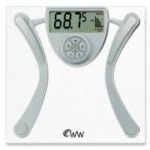Following our article dealing with the fundamental principle of how many calories are needed to maintain weight, explaining how to calculate maintenance calories, it’s time to take a look at how many calories per day are required for a specific goal. We briefly touched up on this topic in that article, but it’s necessary to expand on that knowledge because many people severely overestimate or underestimate their total calories per day. It’s most often advised that irregardless of the goal you are setting yourself up to achieve (whether it’s fat loss, or muscle gain), your calorie addition or reduction needs to be around 500 calories per day. The logic for this is quite simple, there are 3,500 calories in a pound of fat (how many calories are required to burn a pound of fat). Dividing that by a 7 day week, we end up with 500 calories per day.
If we’re dealing with fat loss, we can be on track for about a pound a week loss. If we’re dealing with muscle gain, we’re going to look at a pound gain (of course, not pure muscle gain but overall weight). To know what number you require in regards to remaining at the same weight (maintenance calories), you can use the link above, it’s all there. Once you establish that number, you add or subtract the 500 calories from that number for an overall estimate and judge yourself in the mirror/scale on a regular basis. However, like I mentioned, that’s the most common number that’s used because of the math described above. We’re going to alter that a little bit for a variety of reasons.
1) Fat loss – if you are cutting, 500 calories from maintenance per day is very doable. Your body can drop fat and retain muscle (if your protein is in check along with the calories per day) at a pretty good rate, if you are getting great results from this amount, stick with it. However, a range of upwards of 750 calories per day reduced from maintenance isn’t unacceptable. You have to be the judge, based on how you’re feeling. If you clearly feel tired and weak overall, and your gym workouts are suffering as a result, it’s time to cut back on the reduction. Some people may feel tired from a 300 calorie reduction, it all depends on the individual. My main point though, is that you don’t need to stick with the 500 calories like it’s a magical number. It’s a good number to start with for cutting, but doesn’t have to be set in stone.
On an additional note, make sure that you do not cut calories too fast. Going from eating around maintenance, or even over (if you’ve decided to change things around), to dropping upwards of 750 calories isn’t the best idea. Most people want quick results, and they attempt to cut calories excessively in order to see results in the mirror. As is always stressed, results don’t come in a flash. Cutting calories too severely without a gradual change will only make you crash and possibly cause some muscle loss (the last thing we want). Work your way to an upper limit of around 700-750 calories if you feel your body is up to it, or stick with 500 (or even lower), let your body decide for you.
2) Muscle gain – many people claim that a 500 calories per day increase when it comes to bulking is ideal. I don’t agree with this. Outside of those who have recently started to work out and will have more flexibility due to their body’s attempt to adapt to the new physical stress at an alarming rate (noob gains), going at a pace of a pound a week will probably result in some unwanted fat gain down the road. Of course, you can easily counter by saying that you will be monitoring your progress, and if it starts happening, you’ll cut back. That’s fine, but you can simply avoid that in the first place (you know what they say, better safe than sorry, right?). In my opinion, it’s much more advisable to start a very clean bulk that’s only about 200-300 calories over your maintenance for the day.
We are humans, and we have natural capabilities that have limits. You will not be putting on 1 pound of muscle a week, I don’t care who you are. However, the scale can easily go up a pound a week, the problem will be that over time it’ll move up with some unwanted fat gain. Many people make the mistake of going way overboard in hopes that putting on “weight” is good enough when it comes to muscle gain. That’s not the case, and they’ll wind up having to either cut back later on (wasting time) or require a cutting phase (the standard, but could be avoided if you’re as strict as I mention). Your body cannot keep up with how much you feed it if your calories are on the higher side over maintenance, and you’ll wind up shaking your head later. It’s best to limit fat gain by going just a bit over maintenance in order to give your body just enough to work with. Unless you’re on steroids, you can’t enhance your body’s muscle building abilities because you feed it more so work with realistic calories per day in order to get the best results. Good Luck!
Incoming search terms:
- calories per day
- what would result from cutting 500 calories a day
- calorie limit per day
- What would result from cutting 500 calories a day?
- kcal per day
- 750 calories a day
- is 300 calories a good workout
- is 500 calories a good workout
- 750 calories a day diet
- realistic calories per day








I like what you guys tend to be up too. This sort of clever work and coverage!
Keep up the wonderful works guys I’ve incorporated you guys to my personal blogroll.
Hello there! I just would like to offer you a big thumbs up for the great information you have got right here on this post.
I’ll be coming back to your site for more soon.
Agree with the other comments. Good quality articles. Lots of insightful information. Keep up the good work!
Excellent post! We are linking to this great content on our website.
Keep up the great writing.